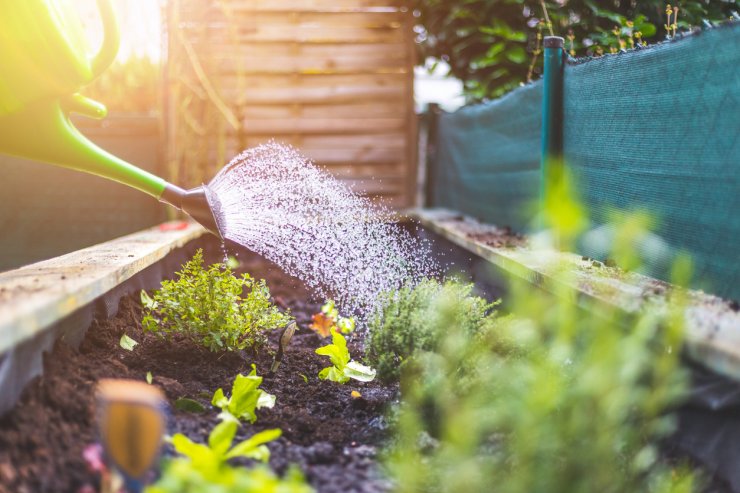
You don’t really need an excuse for planting in raised beds. They help you control the health of the soil, they define your space, and they can help deter some garden pests. My favorite benefit, though, is that raised beds are a lot easier to work with. Lower back, upper back, neck – you name it and planting in raised beds can make it better.
It’s not just your back, though. Gardening is fun and relaxing, but it’s hard work. Especially if you have a large garden, all that tilling and sowing and digging and weeding can have you reaching for that party-size bottle of ibuprofen.
I’m not trying to discourage you from gardening, by any means. It really is a wonderful way to get in touch with nature and you can’t beat the fresh veggies. But it is worth looking at the ways a raised bed can improve your enjoyment of gardening.
Discover 7 top tips for growing, harvesting, and enjoying tomatoes from your home garden—when you access the FREE guide The Best Way to Grow Tomatoes, right now!
10 Ways planting in raised beds is better for your body (and your vegetables)
There is no universal measurement on raised beds. They can be as little as five or six-inches tall or up to three feet. My purely unofficial estimate is that most are about 12 to 18 inches tall. That might not seem like enough to get many benefits, but let’s jump into the details, shall we?.
1. Easier on your back. Planting in raised beds means you don’t have to bend over as much to reach the soil when you tend to your seeds or plants.
2. You can sit. Some raised garden beds have ledges that you can sit on as you work. It’s hard to do that when your garden is in the ground.
3. Gentler on your hands. Because you’re adding the soil to a raised bed, you don’t have to worry about hitting rocks or roots as you dig. That means fewer impacts that jar your hands.
4. Better for the knees. Ah yes, the crackly old knees. It’s really nice when you don’t have to sit on your knees to do your gardening.
5. Fewer weeds. Planting in raised beds that are carefully prepped means you will have fewer weeds to contend with. This is good for you, of course, because it means less bending and reaching and pulling. But it’s also good for your plants, because they won’t have to fight with weeds for nutrients.
6. No tilling. Hey, the less work you have to do, the less your back’s gonna hurt. A well-tended raised bed doesn’t need tilling, as the soil is already looser.
7. Healthier soil. This isn’t all about you – your garden benefits from planting in raised beds, too.
8. Better drainage. Because the soil in a raised bed doesn’t get walked on or compacted, it can drain more easily, leaving your plants with that well-drained soil they love.
9. Longer growing season. The soil in raised beds warms up more quickly, giving you extra time for planting.
10. Fewer guests. Planting in raised beds won’t completely eliminate your unwanted quests, like rabbits or skunks, but it will make it a little harder, and less desirable, for them to get to your plants.
As you can see, the benefits of raised beds are many. You and your garden can both benefit from this kind of garden.
Do you prefer planting in raised beds or do you like in-ground gardens? I’d love to hear what your preference is and why. Share your thoughts in the comments.
Discover 7 top tips for growing, harvesting, and enjoying tomatoes from your home garden—when you access the FREE guide The Best Way to Grow Tomatoes, right now!




